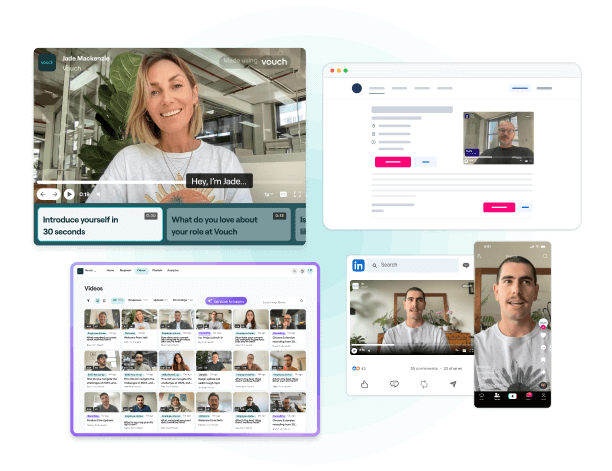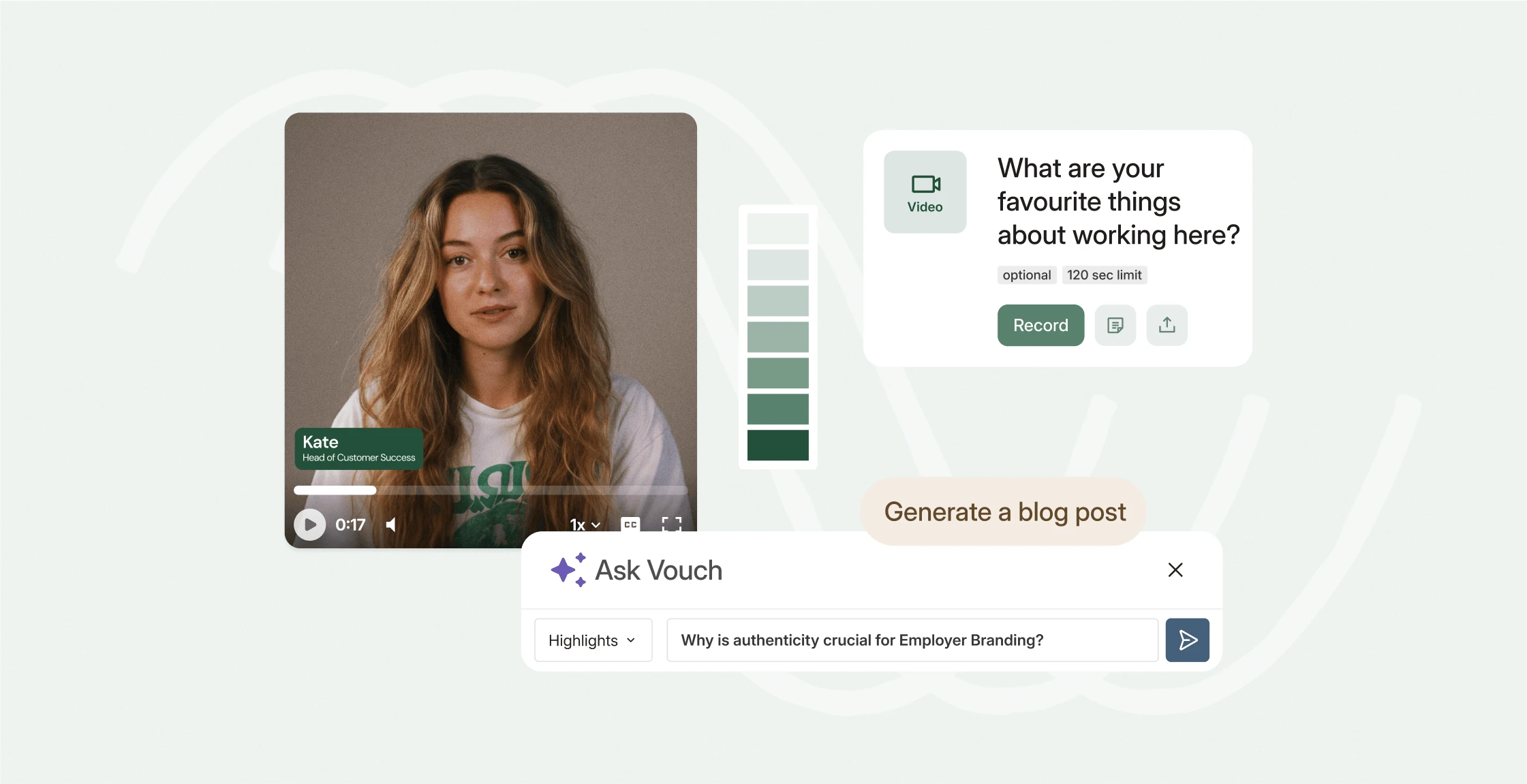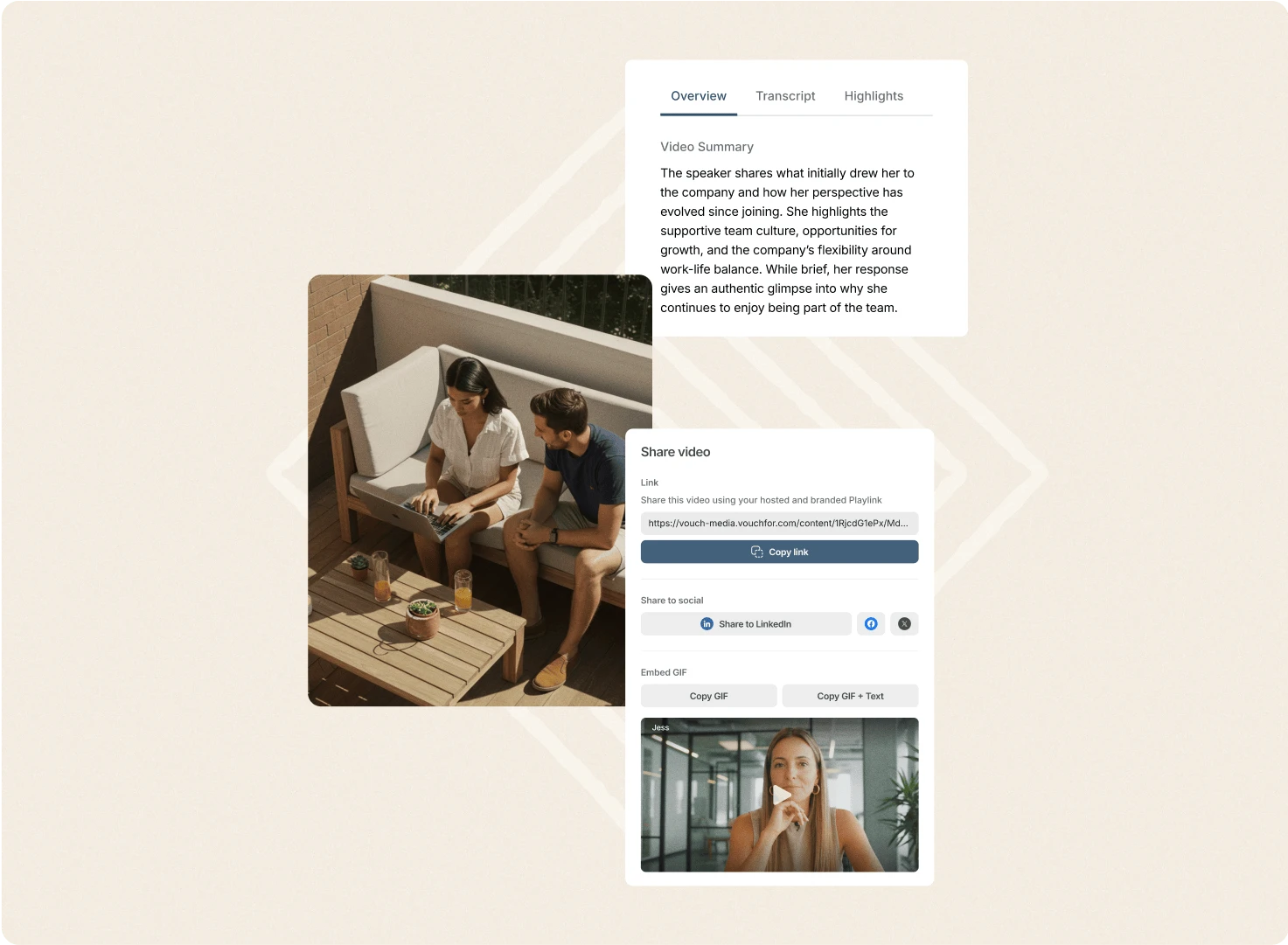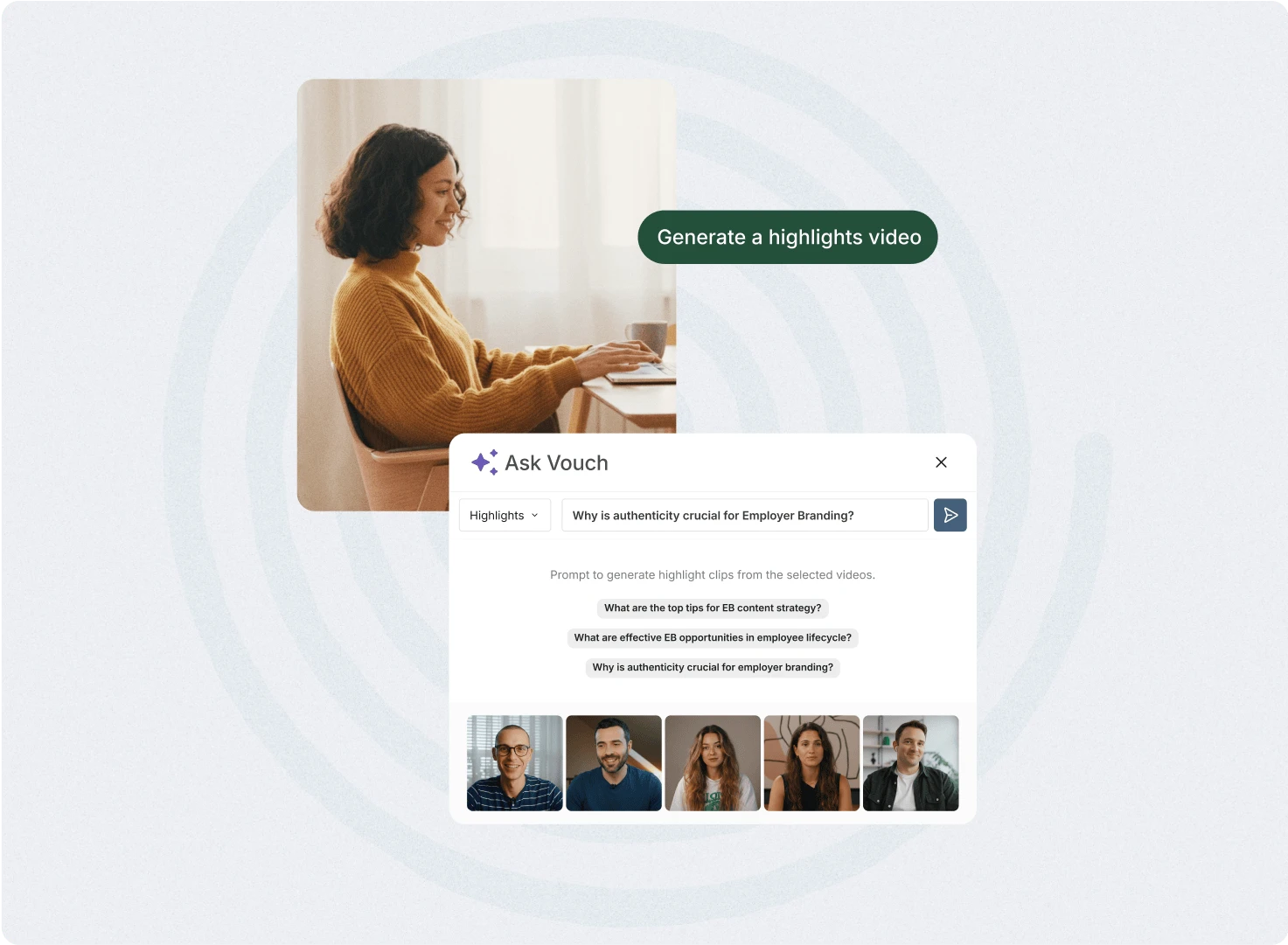In today’s ultra-competitive talent market, simply posting jobs and waiting for applications doesn’t cut it.
Companies of all sizes need to stand out.
That’s where the Employer Branding Specialist comes in, a crucial role where they manage all facets of employer branding including marketing, recruitment, and your company culture with HR and other specialists in these areas.
In this guide, we’ll walk through what a typical day looks like for an Employer Branding Specialist, and more importantly, how their work helps businesses attract, engage, and retain top-tier talent.
Let's get started:
Why Does Employer Branding Matter More Now Than Ever?
Before we dive into the day-to-day, let’s set the stage and look at some key employer branding statistics.
- 86% of job seekers research company reviews and ratings before applying for a job
- Companies with strong employer brands see 50% more qualified applicants and 1–2x faster hiring rates
- 75% of active job seekers are likely to apply to a job if the employer actively manages its employer brand
Employer branding isn’t a “nice-to-have” - it’s a must-have, even if you are a giant like Amazon, Warner Bros or Canva, who all use Vouch.
Step 1: Morning Check-in For Gathered Content & Follow Ups
Once the morning run and coffees are done (in an ideal wold:), a great Employer Branding Specialist starts the day by reviewing their latest employee spotlight videos, testimonials, and candidate Q&A content gathered via tools like Vouch.
These authentic stories serve as powerful content to humanize your brand, and often employees will do these at the end of the day, so it's a great check first up.
Why checking the latest gathered content matters:
- Ensure your content is on brand, looking at it daily is vital
- Builds trust with employees, you can follow-up first thing in the morning too
- Enables consistent, high-quality process if you do this first before the rest of the day starts
Step 2: Analytics Review - What’s Working?
- Check Google Analytics, LinkedIn Insights, Vouch video interactions and ATS dashboards like Greenhouse or Lever
- Measure engagement on career pages, social media posts, and public video content
- Track candidate behavior during the candidate journey, where are they dropping off?
- Add these metrics to your trackers
Key metrics to monitor every day:
- Time on job description pages
- Conversion rates on application forms
- Click-through rates on social media posts
- Application completion rates
Tip: Tools like Vouch help integrate analytics so you can see which employee stories lead to actual applications. Be sure to try it here: Vouch Demo
Step 3: Internal Team Sync
Employer Branding doesn’t happen in a vacuum, collaboration is essential across many areas of your company.
Daily to weekly syncs uusally happen with the following teams:
- Talent Acquisition team: What roles are hard to fill? What’s the hiring pipeline looking like?
- Marketing: Ensure alignment on brand strategy and social media management
- HR Professionals: Gather employee stories, internal initiatives, and company culture insights
- Leadership: Secure support for major branding campaigns or budget allocations
Bring your employer brand to life
- Empower employees’ storytelling
- Transform careers sites with video
- AI-driven video editing
- Publish videos anywhere

Step 4: Content Creation and Scheduling
Now the creative part kicks in.
Content creation tasks might include:
- Writing employee spotlight blogs with videos embeds or using video for social posts
- Scheduling career path features or employee growth stories
- Creating content for social responsibility initiatives
- Designing branded job postings for job boards
- Optimizing career pages to reflect company values and Employee Value Proposition (EVP)
Content should reflect:
- Your great internal communications style
- Your brand reputation with an authentic view
- Company profile including your corporate values
- Real voices from real employees
Step 5: Community Engagement
A big part of the day is spent managing social channels like LinkedIn, Instagram, and even TikTok, Gen Z is watching.
Community engagement tasks include:
- Responding to social comments or candidate questions
- Monitoring brand mentions and engaging where it helps
- Sharing authentic behind-the-scenes content such as a day in the life video
- Promoting employee achievements online
Employer branding thrives when it’s interactive and real, just be sure to engage as quickly as you can to get candidates into your pipelines.
Step 6: Candidate Campaign Management
Using tools like Google Ads, LinkedIn Campaign Manager, or programmatic ad platforms, branding specialists launch recruitment campaigns targeted at specific candidate personas.
Example campaigns that are ideally unique for each role include:
- “Day in the Life” videos for software engineering roles, accounts etc (niche as much as possible)
- Inclusion & diversity content that helps candidates feel comfortable they'll be supported
- Localized campaigns for EMEA, APAC or US
Step 7: Feedback Loop & Candidate Experience Optimization
A great Employer Branding Specialist is always trying to improve, and usually will run surveys to understand the candidate journey and improve it.
Question employer branding manager ask include:
- How’s the candidate application experience?
- What could we have done better?
- Are job descriptions inclusive and engaging?
- Is the brand story clear from the first interaction?
- How did you "feel" about our company when applying, interviewing and onboarding
Step 8: Work On Employee Retention, Always
A great employer branding manager is not just helping attract and onboard new employees, their working to keep them through providing an amazing employee experience.
To read more about employee experience and retention, these statistics are a great start: https://vouchfor.com/blog/employee-experience-statistics
Who Are The Top 10 Global Companies with Brilliant Employer Brands?
Here’s a list of companies (not agencies) with standout employer brands:
- Google – ~182,000 employees, $307B revenue
https://about.google
Known for: Innovation, culture, perks, career development - Salesforce – ~79,000 employees, $31.4B revenue
https://www.salesforce.com
Known for: Employee engagement, social responsibility - HubSpot – ~7,400 employees, $2B revenue
https://www.hubspot.com
Known for: Culture Code, flexible work, internal growth - Adobe – ~29,000 employees, $19.4B revenue
https://www.adobe.com
Known for: Employee spotlight programs, DEI - Spotify – ~9,000 employees, $13.6B revenue
https://www.spotify.com
Known for: Inclusive culture, internal startup incubator - Shopify – ~11,600 employees, $5.6B revenue
https://www.shopify.com
Known for: Remote-first culture, talent acquisition innovation - Microsoft – ~221,000 employees, $232B revenue
https://www.microsoft.com
Known for: Upskill your team programs, global inclusion strategy - Netflix – ~13,000 employees, $36B revenue
https://www.netflix.com
Known for: High performance culture, transparency - Airbnb – ~6,800 employees, $9.9B revenue
https://www.airbnb.com
Known for: Strong EVP, employee testimonials, hybrid work model - Atlassian – ~11,000 employees, $4.4B revenue
https://www.atlassian.com
Known for: Authentic employer brand, team-first culture
FAQs
What exactly does an Employer Branding Specialist do?
They manage everything from employee storytelling, social media, recruitment marketing, to brand strategy - basically shaping how potential employees view your company.
How do I measure ROI from employer branding?
Track metrics like time-to-hire, quality of hire, application rates, and candidate sentiment.
What’s the difference between recruitment marketing and employer branding?
Recruitment marketing is campaign-focused; employer branding is long-term reputation building.
How important are employee testimonials?
Very. They're often more trusted than corporate messaging and improve conversion on career pages.
Can employer branding impact retention?
Yes. A strong internal brand aligned with external messaging improves engagement and reduces turnover.
Do I need a big budget to build an employer brand?
Not always. Authentic content like Vouch videos and strong internal comms go a long way on a small budget.
What are the best channels for employer branding?
LinkedIn, Instagram, your careers site, Glassdoor, and employee advocacy programs.
Final Thoughts
Being an Employer Branding Specialist is more than posting pretty pictures on LinkedIn. It's about creating a genuine, consistent, and compelling story about who your company is and why someone should work there.
From using tools like Vouch to sharing employee stories, to launching global campaigns, the role is evolving fast, and the companies that invest in it are winning the war for talent.
See Why Employer Brand Managers Love Vouch!
Loved by companies like Canva, Nike, Cisco, HubSpot, Amazon and more, tools like Vouch make leveraging video in your business remarkably easy.
Be sure to book a Vouch demo today and chat with a video content expert.
You might also like

Elevate Your Brand Today With Vouch
Discover how Vouch can accelerate talent acquisition while helping you stay on-brand.






